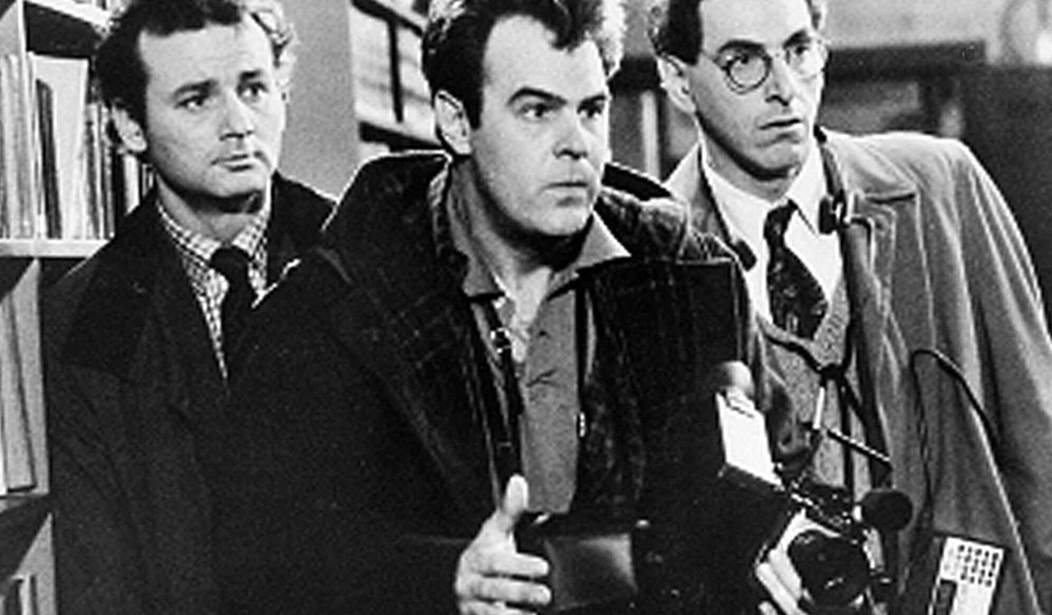Sony Pictures seems to be confused about why their tentpole release isn’t doing so well:
“The more I ponder it, the worse this scenario plays out. Curiosity played a big factor in the $46 million debut and, as such, I doubt it will hold like a typical Feig comedy. In fact, I think it’s going to drop big time when Star Trek Beyond and Ice Age: Collision Course open next week,” says box-office analyst Jeff Bock.
“I know Sony is crowing about it being a great opening for a comedy, but the entire Ghostbusters legacy is what’s at stake here, and it’s not looking good. This was supposed to be a blockbuster,” he continues. “Sony definitively did not launch a franchise, and seemingly they might be the only ones that don’t know it. I know it’s been a tough road for them, and I feel for them.”
“They don’t know it.” But Sony should have known. The failure was baked in at the start, and it had nothing to do with the all-female leads, male chauvinism, internet haters, or any of that stuff.
Ghostbusters was lightning in a bottle — a weird, one-off, one-time thing. The timing and the elements were such that not even the original writers, cast, and director could make a decent sequel. But the beloved original worked for a host of interlocking reasons, almost certainly never to be repeated.
The first is Dan Aykroyd. The man is obsessed with the paranormal. He believes in this stuff:
Dan Aykroyd really does believe in ghosts. “It’s the family business, for God’s sake,” he says from his family’s farmhouse in Ontario, site of Aykroyd séances for generations. Aykroyd’s great-grandfather was a renowned spiritualist; the family had its own regular medium to channel souls from the other side. His grandfather—a telephone engineer—investigated the possibility of contacting the dead via radio technology. His father authored a well-regarded history of ghosts; strange lights halo his daughter in photographs.
Outside of Hollywood, the Aykroyd family obsession might make Dan at best an awkward party guest. But Aykroyd also enjoys a earnest-but-goofy charm and serious comedic chops.
However — Aykroyd’s initial treatment for Ghostbusters wasn’t the grounded NYC comedy we remember so well. According to the DVD commentary, Aykroyd had originally envisioned the ‘Busters as bored ecto-garbagemen sent to other dimensions to do cleanup work. Comedy is difficult enough in the real world, let alone when trying to drag audiences through unfamiliar universes.
Fortunately, director Ivan Reitman recognized the comedic (and budget-busting) problem early on, and suggested a rewrite set in New York City. While the production did have big budget for a comedy at that time, the relatively primitive special effects meant that Reitman couldn’t rely on spectacle to save Aykroyd’s idea from its inherent weirdness.
Which means they really had to nail the casting — and they did.
Alone, Aykroyd’s earnest devotion would have been too much for an audience to accept — so we got Bill Murray and his cynical charm added to the mix. That was the audience’s “in” to this strange new world, much like Han Solo’s comment about the Force being “a lot of simple tricks and nonsense” helped audiences to suspend their disbelief for Star Wars. Ernie Hudson was the Everyman who allowed us to imagine ourselves doing the unlikely work of busting ghosts, and Harold Ramis was the real-world scientist/engineer who provided the necessary veneer of scientific credibility.
On the screen, Murray, Hudson, and Ramis brought Aykroyd’s otherworldly lunacy into the real world for everyone to enjoy. Behind the scenes, Reitman’s light touch from the director’s chair let all the stars shine. It also helped that everybody was just funny and/or sexy as hell — I’m looking at you, Rick Moranis and Sigourney Weaver.
And, as a follower on Twitter reminded me last year, New York City was just as much a character as any of the actors were. That is, the NYC of the early ’80s. The city at that time was nearly broke, crime-ridden, badly managed — a lovable underdog in need of heroes. A city to cheer for.
Ghostbusters worked because the right weird people came together at the right time, trying like hell to make a weird idea wonderful. And you can’t duplicate that process by having bottom-line studio execs re-working the same old weird idea, set in a city owned by billionaires and run by useless busybodies.
Speaking of underdogs, the ‘Busters themselves were shoestring entrepreneurs, hounded by a buttinsky EPA official. They built a thriving business from the ground up — but today we live in the era of “you didn’t build that.” Back then, William Atherton’s environmental “protection” bureaucrat unwittingly unleashed an apocalypse — but today Hollywood would sooner commit box office seppuku than disrupt the narrative about our benevolent EPA.
Really then, Ghostbusters was first and foremost a Reagan-era comedy: Cheerful, optimistic, entrepreneurial, wary of Big Government.
Maybe someday all those weird and disparate elements can come together again to successfully reboot Ghostbusters, but today is not that day.










Join the conversation as a VIP Member